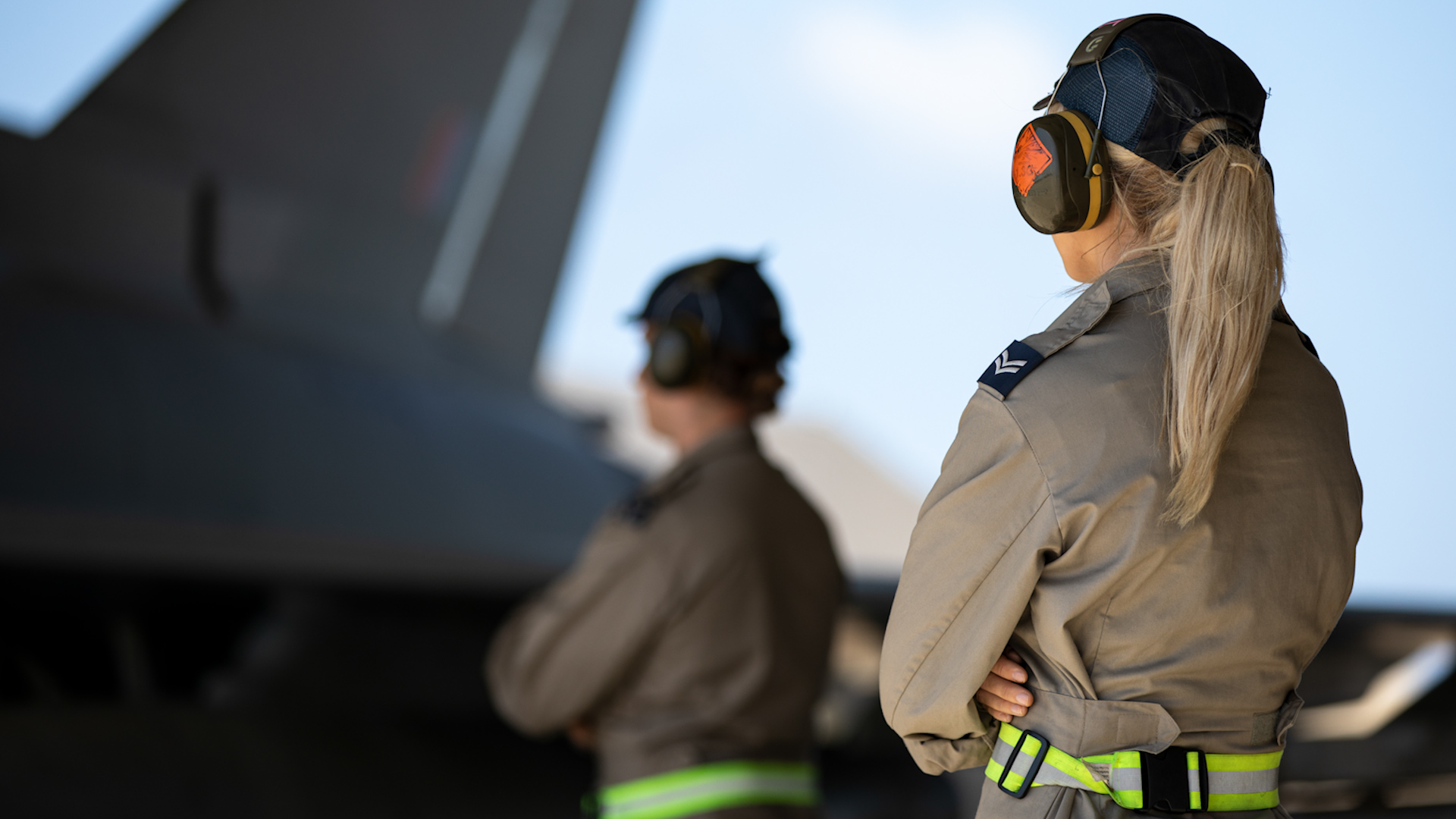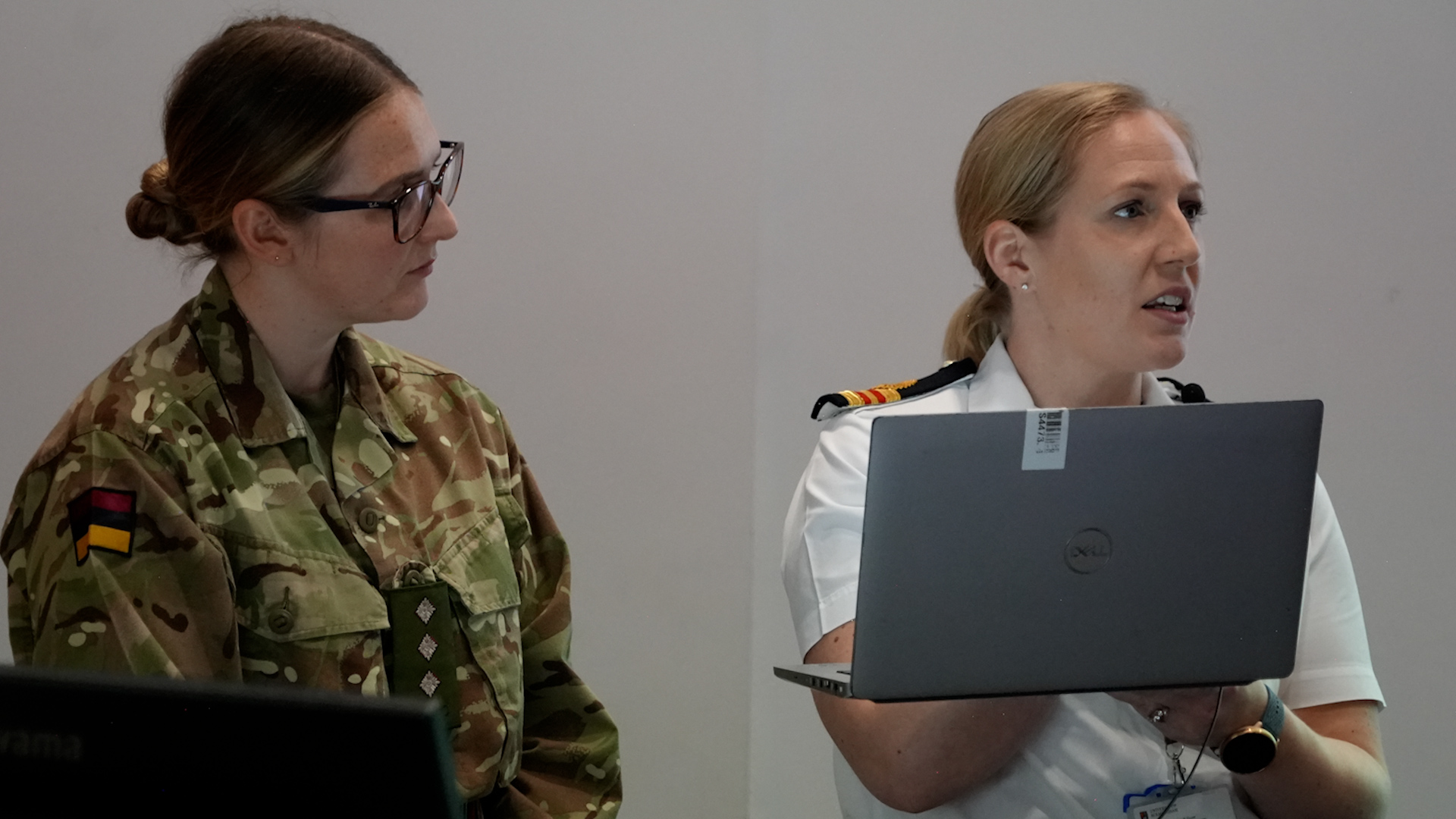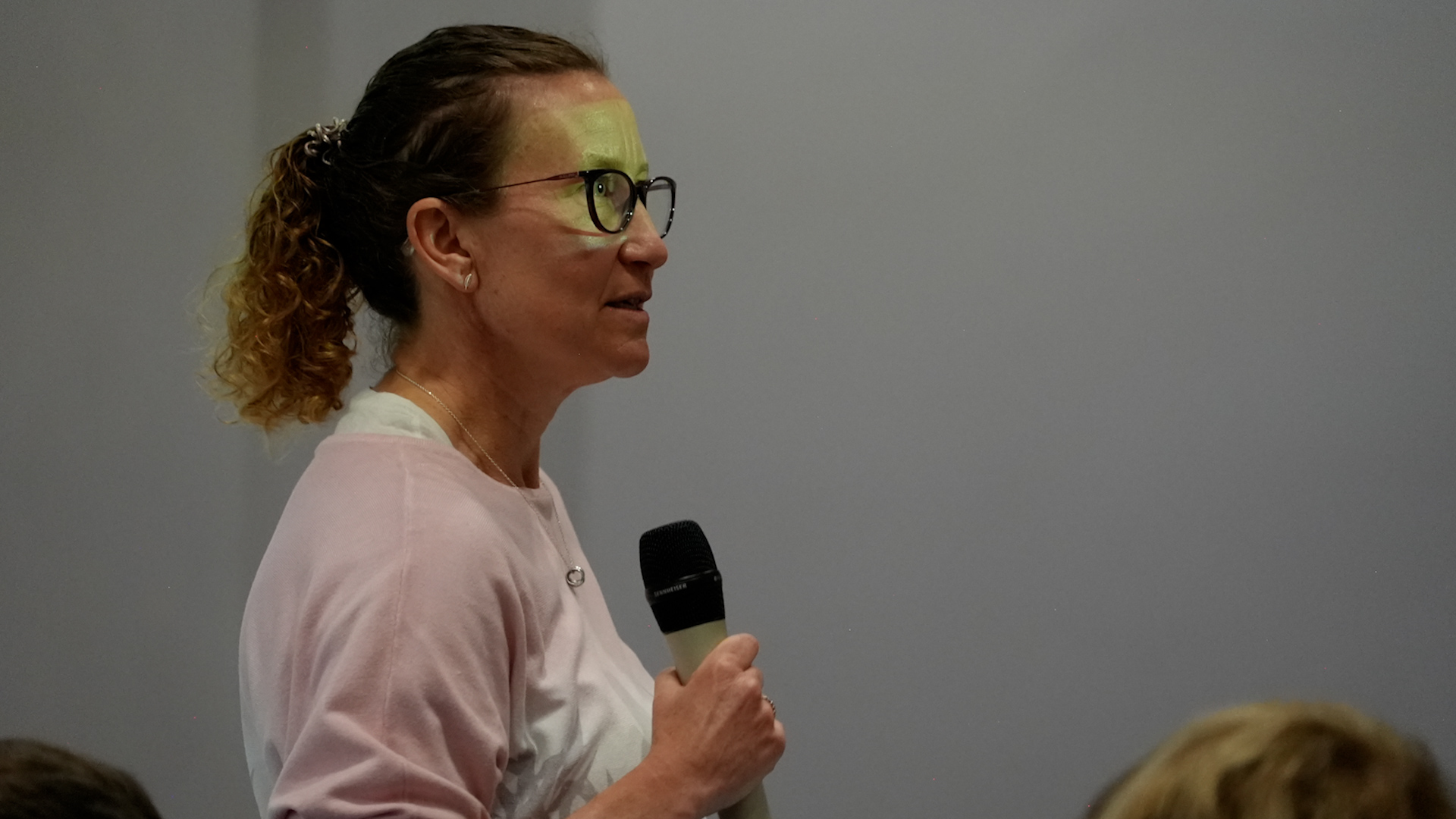
Defence Women's Health Conference: We need a world where it's ok to say 'vulva'

Leaders in women's healthcare in the military are calling for a change in conversation – looking to a world where mentioning the words 'vulva' and 'hysterectomy' no longer cause people to choke on their tea and run for the hills.
The Defence Women's Health Conference was born to champion and improve healthcare for women in the military.
Access to and continuity of care in many ways is far superior to what the NHS can provide, but the stigma around women's health remains a problem – arguably more so in the military where women are very much the minority.
"There is actually a real air of silence around women's health," says Surgeon Commodore Beth Crowson, Commandant of the Defence Medical Academy.
In an emotional address to a packed lecture theatre, she shared some of her most personal medical history.
She said: "When working out what to say to the conference, I realised I've been quite happy to share my personal experiences as a patient receiving mental health care.
"But my personal experience as a patient experiencing women's health issues, it's not something I've ever felt comfortable discussing with my peers or with my colleagues in the workplace.
"So when women experience some of the very pivotal, life-changing moments in their lives – pregnancy, menopause, miscarriage, abortion, breast cancer – we don't talk about that.
"It feels like a conspiracy of silence, and the acceptability to talk about women's health problems in the workplace seems to be much lower than the acceptability to talk about mental health problems."
Further evidence of this lies in a presentation on abortion in the military by Captain Victoria Kinkaid and Surgeon Lieutenant Commander Ruth Guest.

Preliminary results of their research show that 77.5% of women went straight back to work after having an abortion, with no sick leave or even light duties.
"We're keen to ensure as healthcare professionals that we are seeing women after they've had an abortion, and we're giving them appropriate follow-up and time off if they need it," said Capt Kinkaid.
But first – they need to feel able to talk about it.
Educating specialists will help. "PTIs should have training to look after women," said Dr Sarah Rollins, a former Army GP, now working as a civilian.
"They need to learn about things like the pelvic floor after childbirth.
"They should know how to deal with service personnel – whether they've had an ACL reconstruction – or whether they've had a baby. We [women] are not a tag on!"

Discussions throughout the day were wide-ranging – from sports bras to testosterone, to menstruation boxes for deployment.
Specialists working in the field hope that by raising these subjects they can create a more comfortable environment for women to speak openly about their health.
"But I realise here we are preaching to the converted," Surgeon Cdre Crowson told the room.
"So next year bring your friends – bring your friends who don't like saying 'hysterectomy' in public – let alone the word 'vulva'!"









